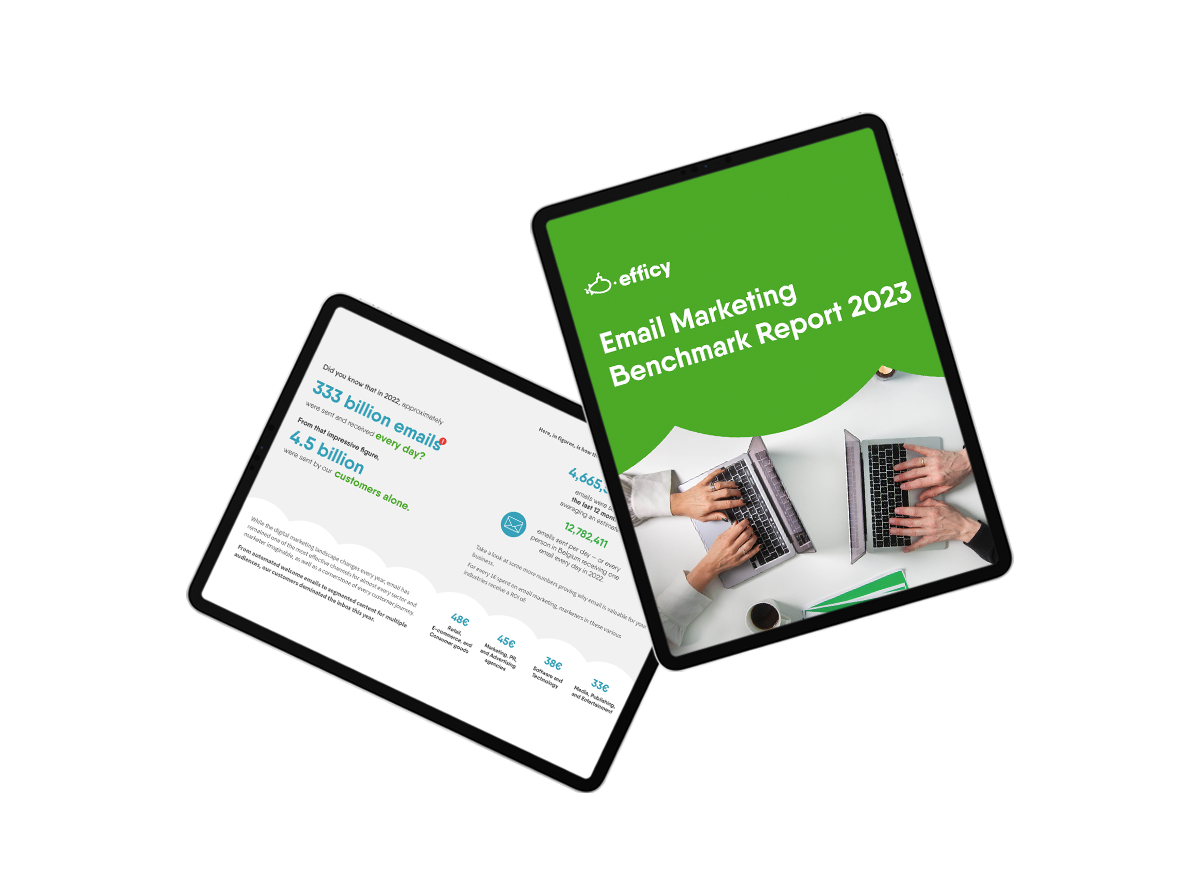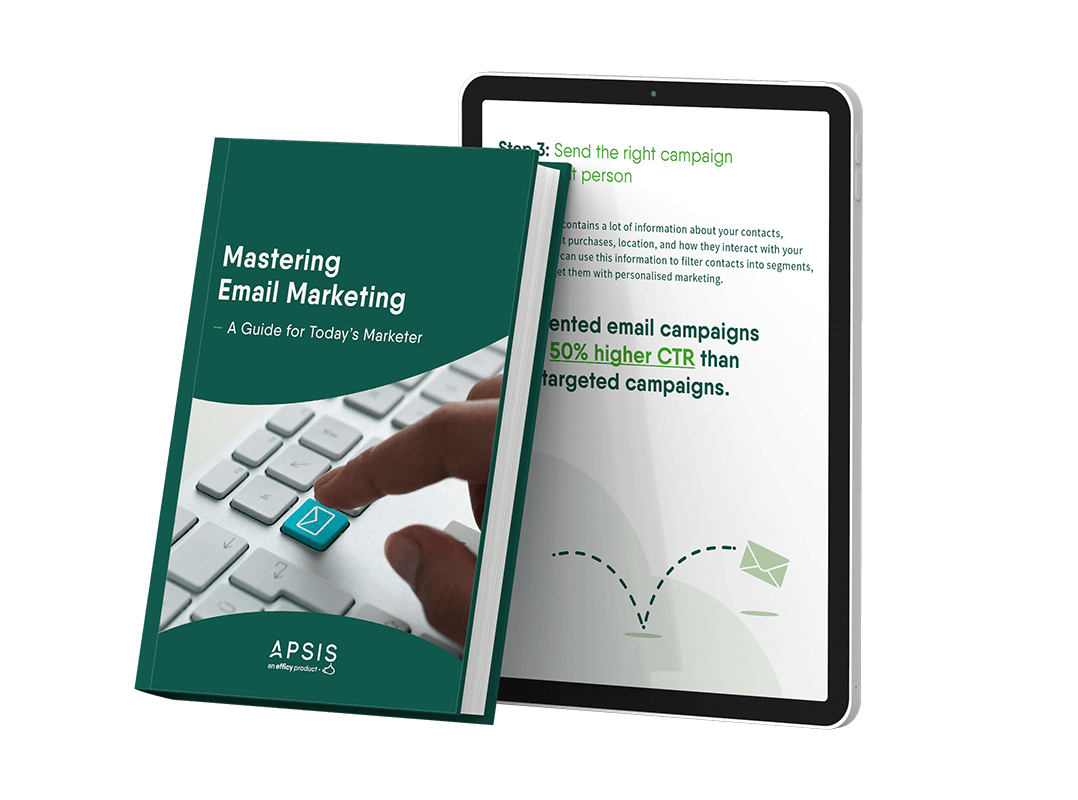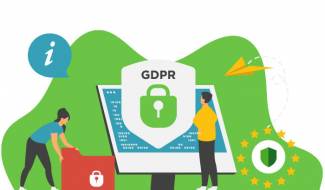Navigating Personalised Advertising Without Violating Privacy Boundaries
Personalised advertising in a data-conscious age
B2B companies constantly have to deal with unforgiving competition, whether it’s market disruption from new technology or price pressure from discounts. Marketing & sales teams can hardly catch a break, as there’s hardly any competitive leverage that can’t be duplicated.
Not anymore. Personalised ads make differentiation possible, as companies can now create tailor-made experiences for each customer, helping them garner customer loyalty, more sales, and a better bottom line.
However, following the rising awareness about data privacy and buzz that has greeted the passing of the GDPR framework, customers have become increasingly sensitive about their privacy. Now, certain personalised advertising strategies have become perceived as invasive and creepy. The dilemma here appears to be this: amidst a deep concern for data privacy, customers desire and, in fact, expect brands to personalise their advertising experience. This McKinsey report reveals that 71% of buyers expect customisation, and 76% of them get frustrated when there’s a lack of humanised interaction with a brand.
Similarly, buyers also expect their right to data privacy to be respected, as it has long been a widely-held consensus that businesses must respect rights — including data privacy rights — even in the absence of government intervention. The UN’s human right department also concluded that governments must regulate the activities of companies when it comes to how personal data is treated. Private companies are showing compliance with these rights in their operations. Apple’s latest privacy changes bestow users with the gift of choice — to block the IDFA (The Identifier for Advertisers) tracker or not. Google has already announced plans to phase out third-party cookies from the Chrome app in 2023.
While these developments have brought some panic for advertisers and marketers, there’s a call to align with the new normal. To avoid provoking customer backlash and to sustain their marketing campaigns, businesses must understand these data privacy boundaries and stay extremely cautious when collecting and processing customer data.
There’s also the challenge of wearing our innovative hats to squeeze more value from the first-party data we can accumulate. New ways to target without compromising the data privacy rights of customers is the trick here. Let’s get into it.
What is personalised advertising and its benefits?
Personalised advertising is a marketing strategy that tailors marketing messages to individual audience members’ unique characteristics and personality traits based on personal data already collected by the company or its agents.
With personalisation, companies can collect massive amounts of data and analyse them to create near-accurate profiles of their present and prospective customers. And then, with tools specifically designed for the purpose, they can send out marketing messages that are then customised to cater to the specific needs of each recipient.
What are the benefits of personalisation?
Compared to traditional mass-marketing methods, personalised advertising methods have produced significantly higher conversion rates, among other benefits, including:
Increased Engagement
Users are more likely to notice and click on personalised ads than generic ads.
Greater Relevance
Ads that are personalised to the user's interests and needs are more likely to be relevant and useful to them.
Improved ROI
Personalised ads tend to have a higher return on investment than generic ads, due to the increased engagement and relevance.
Increased Brand Awareness
Personalised ads can help to increase brand awareness and recall, as users are more likely to remember an ad that is relevant to them.
Boosted Sales
Ultimately, the goal of any advertising campaign is higher conversion rates, which helps boost sales. Personalised ads have a higher chance of achieving this goal than generic ads.
What are the dangers of personalised ads?
One potential risk of personalised ads that businesses are often concerned about is the violation of customer privacy rights. If the B2B data being used in their sales process is sourced through tools or mediums that are not in line with the GDPR, was consent obtained to get their data? If so, how was consent acquired?
These and many more concerns should linger in the minds of businesses that leverage data to run their operations. Thus, if you source your data in-house (or first-party data, i.e. you collect your data yourself) or externally as third-party data (data bought from outside sources which aren’t the original collectors of the data), you must verify that your sourcing process is GDPR compliant.
But here’s how Efficy helps you stay compliant: With Apsis' website tool, you can always capture consent from your website visitors with our easy-to-implement tool for cookie consent. Gather personal data with our GDPR-friendly subscription forms and pages, ensuring that you’re starting their journey through your sales funnel with a GDPR-compliant strategy.
When is personalised advertising crossing a boundary?
Many people feel that personalised advertising is a step too far and an invasion of privacy. Researchers have identified two factors that determine how comfortable people will be using their personal data:
The nature of the information
The more intimate data is, the more uncomfortable the people get. For instance, while users might feel a tad comfortable with an ad that broadly targets their demographic, they might not take kindly to an ad that references their personal health data.
Information exchange
People tend to be concerned when there's any indication that their personal data has changed hands. In other words, they don’t want transfers of their personal data to occur behind their backs. And if at all, you must do this, European legislators and regulators have laid out guidelines for data sharing in the GDPR.
How to set limits when communicating or approaching the customers
Granted. Personalised advertising has its problems. Yet, its upsides far outweigh its dangers. It does not only increase profitability for businesses, but it tremendously improves customer experience.
By following the recommended best practices and guidelines in the GDPR, you can still use personalised advertising in a way that's legal, ethical, comfortable for your audience, and profitable for your business.
Abstain from using sensitive information
This is the cardinal rule when delineating the ethical boundaries of data use for personalised advertising. In a modern-day paradox, the more specific your ads are, the more guarded or circumspect an audience gets to your marketing message.
Besides, with the space becoming more regulated, Facebook, Google, and most of the other internet giants now prevent customised targeting that uses any information on the racial and sexual identities of the audience.
For instance, would you rather send emails advertising potential cloud storage solutions to a business when you can simply consider advertising on the websites they are likely to visit in their search for it? This way, it's less intrusive but just as likely to do the job.
Full disclosure should be non-negotiable
By default, there is a ‘trust deficit’ surrounding personalised ads. In the light of data privacy discoveries, customers now half-expect advertisers to have some tricks up their sleeve for maximising effectiveness and conversion.
The onus lies with you to build trust by maintaining transparency in your actions. Besides, this is now a requirement under the GDPR. As an advertiser, the law requires that you inform the audience about your data handling methods and obtain overt consent before collecting or using their data.
However, investing in transparency as part of your commitment to your customers can build even more trust with them. Efficy Marketing’s website tool, for instance, the consent management functionality, helps you gain consent (both cookie consent and consent to collect personal data) from your website visitors using our GDPR-compliant subscription forms.
That way, you’re all set to harness a goldmine of customer data on your website while erring on the side of privacy. You can then leverage this customer data to grow your business using behavioural targeting.
Conclusion
With the GDPR now carrying the full force of law, personalised advertising in Europe is the gold standard. By ticking legal compliance boxes and following industry best practices, you can stay within the boundaries of reason, avoiding backlash and regulatory scrutiny — all while driving tremendous value for your customers.
Efficy provides next-level digital marketing solutions to numerous clients across the globe. In over nearly 2 decades, we’ve helped thousands of B2B businesses avoid steep fines from regulatory backlash and damage to their brand reputation with our thorough approach to compliance.
Are you next in line? We’re ready when you are! Book a demo today to catch a glimpse of the Efficy experience.






